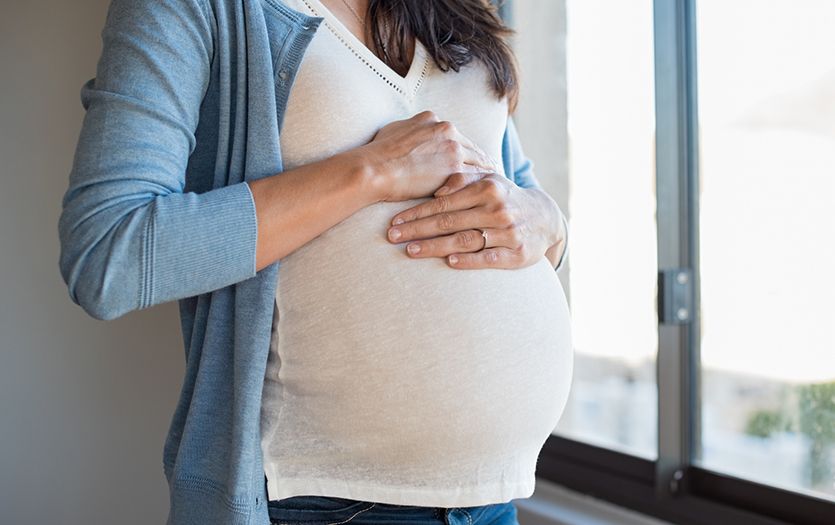
Mothers and their babies share an extraordinary bond, including their health and well-being during and after pregnancy. While much focus has traditionally been placed on infant mortality metrics, new data has drawn increased attention to maternal health. Kathy Detweiler, director, patient navigation, Parkview Women's & Children's Hospital, discusses top findings from the Indiana Maternal Mortality Review Committee's (MMRC’s) 2023 annual report and highlights efforts to reduce and prevent factors contributing to maternal death.
What are the primary causes of infant mortality?
Kathy: We know maternal and infant health are very closely related because the environment a mom is in during her pregnancy and beyond will have an extreme impact on the baby.
The statistics from the Indiana Department of Health indicate that perinatal risks are the most significant cause of infant mortality, which is all about the mother's health. That can include prematurity, congenital anomalies, birth spacing, the moms pre-pregnancy health or complications of pregnancy. Sudden unexpected infant death (SUID/SIDS) is another major contributor to infant mortality and occurs between 28 days to the infant’s first birthday.
What are the primary causes of maternal mortality?
Kathy: The number of maternal deaths associated with perinatal, pregnancy-related and pregnancy complications has declined, but overall, they have not decreased.
Every life that we save by preventing hemorrhaging or managing hypertension ends up being lost in other ways. More than half of our maternal deaths are related to overdose, whether it's accidental or intentional. In most cases, it's accidental. The second and third leading causes were motor vehicle accidents and gunshot wounds.
We found the most significant number of maternal deaths occurred in women 20-29 years of age. This cohort also experiences a higher incidence of domestic violence, suicide and overdose.
How does postpartum depression impact maternal health?
Kathy: Mental health is always a significant contributor to maternal outcomes. I am very grateful that I've seen more suicide and mental health awareness. Many public campaigns are emphasizing that help is available for mothers dealing with mental health issues, but there is still a lot of stigma that prevents them from receiving that support.
There is also a lot of concern for families struggling with substance use disorders and having the added stigma of being a pregnant mom or just delivered. It's difficult for them to find help because some believe they should have already figured it out or have previously burned bridges that caused those support systems to disappear. Families in these circumstances need more support, not less.
What programs does Parkview offer to address maternal mental health?
Kathy: Several programs throughout Parkview and the community offer mental health support for new moms following pregnancy. Specifically, for postpartum depression, there are support groups at various hospitals in the region and community nurses who conduct home visits. There are also therapists specializing in perinatal mood disorders, hormone changes and sleep deprivation.
A lot of evidence supports that women who receive help when they are pregnant and postpartum are more likely to quit and stay clean than at any other point in their lives. Pregnancy is a life-changing diagnosis. Having a baby and becoming a parent inspires the most change, but it is still challenging.
How do these programs also benefit the baby?
Kathy: It's much harder to have a healthy baby if you don't have a healthy mom. Many of these programs take a very hands-on approach and sometimes follow up with mom and baby at home. The community health worker program visits the baby and mom, allowing her to discuss things like breastfeeding and what milestones the baby is reaching. If there are concerns, the CHW can connect with nurses or pediatric providers to ensure the babies get well-baby check-ups and access to other essentials such as car seats, diapers and formula. Depending on the family's goals and needs, that program can range from only a few visits to up until the baby's first birthday, and it supports 450-500 families per year.
What steps can the community take to improve maternal and infant health?
Kathy: There are many recommendations that result from both infant and maternal mortality reviews. Some of them pertain to public-facing matters and community awareness. When speaking to people in our community, we have found that many women of childbearing age don't realize how important it is to be healthy before they become pregnant or to report their symptoms when something seems wrong. We want every mom, dad, grandparent and teacher to know how to recognize the signs and symptoms of common pregnancy complications so that we can intervene sooner. Others are as simple as wearing a seatbelt and not driving under the influence. Those aren't new messages, but car wrecks are killing moms and babies. Mortalities caused by distracted driving are easily preventable.
Final thoughts
Tackling the intersectional factors contributing to increased maternal and infant mortality requires a collective effort. Together we can reduce stigma surrounding maternal health and create robust support networks empowering and educating women throughout their reproductive journey.
If you're pregnant, thinking of becoming pregnant or recently had a baby and would like to learn more about resources available for mothers in your area, contact an OB nurse navigator.



